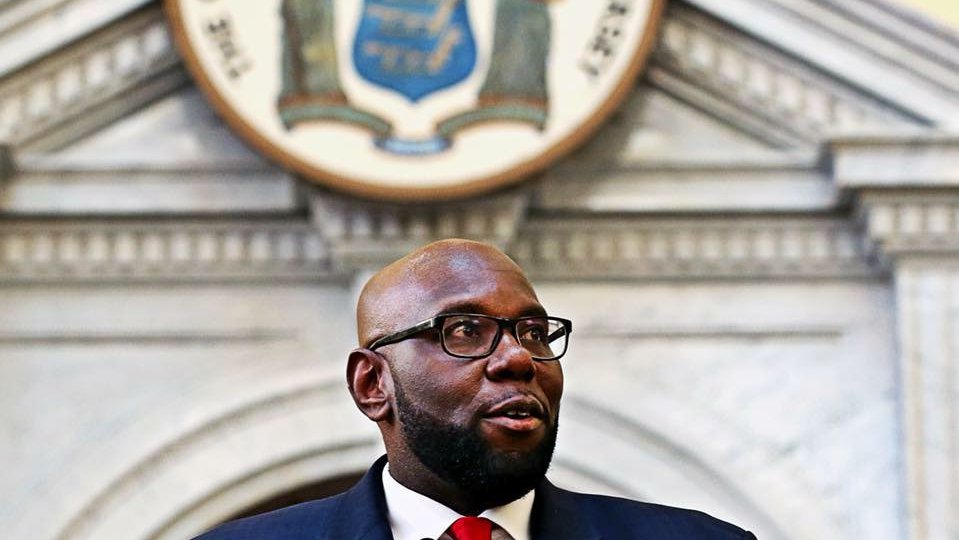
Senator Troy Singleton | April 26, 2019 | Star-Ledger |
The foreclosure crisis affects all of us in one way or another, directly and indirectly – whether we are the homeowner losing our home and years of hard-earned equity, or the neighbor who lives next door to an abandoned property or someone whose home value has decreased because of a foreclosure nearby – its consequences are far reaching.
Over the past decade, the eruption of the mortgage industry, which rattled the nation, left New Jersey with the unwelcome fallout of massive amounts of foreclosures. In fact, more than half of all properties in foreclosure in New Jersey were first purchased between 2004 and 2008.
So exactly how bad was New Jersey’s foreclosure crisis? In 2017 alone, there were more than 70,000 properties in foreclosure, located in cities, shore towns, rural areas, and suburbs in each of our 21 counties. For instance, in my home county of Burlington, there were more than 4,360 foreclosures in 2017 – one for every 41 houses; in Essex County, home to our largest city, the foreclosure rate was one in every 72 houses.
Essentially, the American Dream of homeownership instead became a real-life, terrifying nightmare. As a result, New Jersey earned the dreadful distinction as the state with the highest rates of foreclosed homes in the nation. Our foreclosure numbers were hitting record-breaking highs, while the rest of the country was experiencing their lowest rates in more than a decade.
However, I believe we have reached a turning point. While New Jersey still outpaces the rest of the nation in foreclosure activity, we are seeing signs of hope. Last year, 18,801 foreclosures were started compared to 21,274 in 2017. That is a 12 percent decrease. And, the number of foreclosures initiated in 2017 was 23 percent less than the year before. Additionally, the number of foreclosure cases in our courts has been drastically reduced from 144,032 in 2011 to 27,229 active cases in 2018.
To further address the foreclosure crisis, New Jersey Supreme Court Chief Justice Stuart Rabner created the Special Committee on Residential Foreclosures, which released its findings in a report last September. In this report, it identified more than a dozen ways to ensure a timelier and fairer foreclosure process in our state.
In order to implement these recommendations, I introduced a package of 10 bipartisan bills that would make needed reforms to the foreclosure process. Working with my colleagues in the Legislature – Senators Steve Oroho, Dawn Addiego and Ron Rice and Assembly Speaker Craig Coughlin – we brought various housing, banking, and community stakeholders together to further refine those recommendations and shape this bill package into a pragmatic blueprint designed to forcibly address this issue. That package advanced from the Senate on Friday.
These proposals include:
- Improved access to mediation programs so homeowners are more aware of their eligibility to participate
- Expedited timeframes for homes to get back on the market so they don’t have time to become blight
- Creation of a centralized and updated database of foreclosed properties so foreclosures can be better identified by developers who may want to purchase and renovate the homes;
- Inclusion of contact information for vacant properties, which would allow municipal officials to crack down on creditors who are not properly maintaining them;
- And funding for homeowners who need help with their mortgage payments.
While this issue is not new, the comprehensive approach outlined in this bipartisan bill package is. It seeks to build upon the continued reduction in pending foreclosure cases and shorten timelines to adjudicate these cases. This further reflects the cooperative work undertaken by the executive, judicial and legislative branches of government collaborating to address this issue.
Do I believe that New Jersey’s foreclosure problem escalated to the point of a crisis? Yes, absolutely. But, I also feel that we are at a tipping point, where through a series of significant statutory changes to the foreclosure process, each can have a greater, residual impact on the economy in New Jersey.
By solving the foreclosure problem, we will most importantly help people stay in their homes, but we will also help to increase property values, stabilize our communities, and improve our overall economic outlook.
Senator Troy Singleton represents the 7th Legislative District, and Chairs the Senate Community and Urban Affairs Committee.
Read the article on NJ.com

